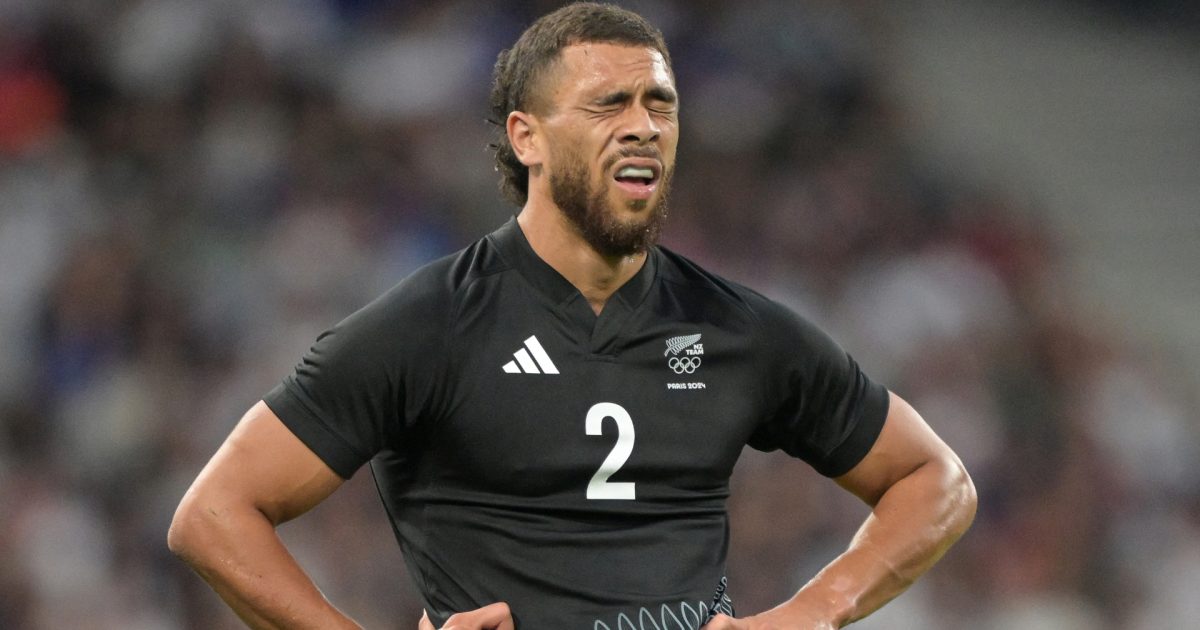‘Brutality of sport’: New Zealand ‘punished’ by South Africa at Olympics

Sky Sport rugby commentator Brendan Laney believes the New Zealand men’s sevens side “didn’t quite” make the most of some try-scoring opportunities in their 14-7 quarter-final loss to South Africa at the Olympic Games.
New Zealand came into the event genuinely believing they could at least challenge for a medal at the Paris Games. They had improved significantly in the back half of the SVNS Series season which included Cup Final wins in Hong Kong China and Singapore.
The Kiwis were exactly where they wanted to be a day and a half into the competition after flying through pool play with three wins from as many starts. New Zealand beat Japan, South Africa and Ireland as they topped Pool A going into the knockout rounds.
But waiting for them was a familiar foe and an always-difficult challenge. South Africa had qualified as one of the top two third-placed teams from the pool stage and they certainly made the most of their second chance.
South Africa had been beaten by both Ireland and New Zealand on the opening day but made amends with a defensive masterclass in their quarter-final. The New Zealanders were knocked out of medal contention in a thriller at Stade de France.
“At the end of the day it comes down to opportunities taken and that’s exactly what the New Zealanders did in the first game,” Brendan Laney said on SENZ Afternoons with Staffy.
“In the second game, you’ve got to admire the way the South Africans backed up.
“Sevens is such a tough game. You can only be a little bit out – you only have to make a couple of little mistakes and you get punished and that seven minutes disappears really bloody quickly.
“They turned the ball over, the All Blacks Sevens, a couple of times. They dropped the ball a couple of times… it also came back to pressure, the amount of pressure the South African boys put on was pretty immense and they took their opportunities.’
Both teams traded jabs in the opening exchanges before South Africa landed the first significant blow on the scoreboard. Captain Selvyn Davids ran through a concerningly large gap in New Zealand’s defensive line to score the opener a few minutes in.
Davids was once again in the thick of the action moments later by so nearly scoring another for Team South Africa. The skipper noticed there wasn’t a sweeper so after hoofing the ball downfield, regathered possession and managed to get an offload off.
With that assist, South Africa extended their lead to 14-nil.
New Zealand hit back just before the halftime break with Moses Leo making a crucial break down the left edge to score. That try was converted which reduced the deficit to just seven points, and meant it was all to play for in the second term.
But South Africa were practically perfect in defence. They had impressed with their defensive efforts during their narrow loss to Ireland on day one and backed that up when they needed to by keeping New Zealand quiet in their quarter-final.
With neither team adding to their score, South Africa moved on to the semis.
“They got a couple (of opportunities) early on and they took them. You’d have to say their defence won them the game, the way they defended their line when the All Blacks Sevens were hot on attack and probably would’ve scored against any other team,” Laney continued.
“The way they defended was just magnificent. Obviously, not for the New Zealand Sevens.
“I thought they had a few opportunities but didn’t quite take them so they’ll be disappointed in themselves… four years build up to get to an event like that and obviously miss out but that’s the brutality of sport, particularly sevens.”
Incredibly, South Africa’s return to form after going 0-2 on the opening day continued with a medal on the line. While they were beaten in the semi-finals, they bounced back in their third-placed playoff against Australia.
Selvyn David was once again the man of the moment with the skipper running into the in goal for a try with time up on the clock at the scores locked at 19-all. But Davids was unselfish by handing the ball off to a teammate who placed the ball down.
South Africa are the 2024 Paris Olympic Games bronze medallists in men’s rugby sevens.





































































